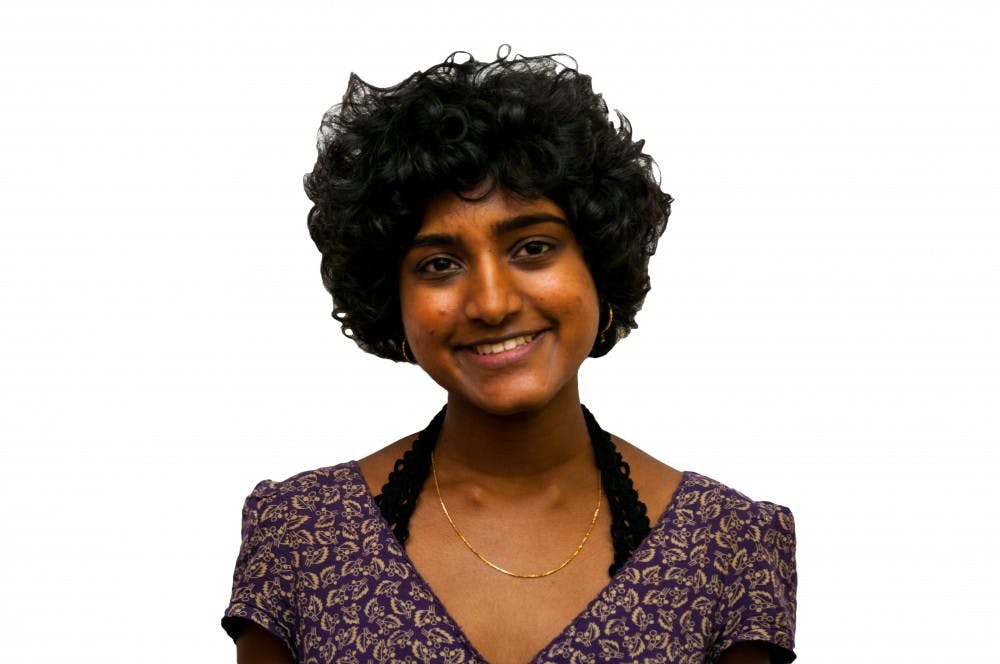Whoever said “it’s about the journey, not the destination” had never been entrusted with the herculean task of picking out a film on Netflix for themselves.
My father calls it my “favorite pastime”: spending a movie-length amount of time scrolling over and over again through Netflix’s massive film collection. “Why don’t you flip a coin?” he’d ask. “Absolutely not,” I’d say. I’m always afraid of missing out on a “hidden gem” — Daniel Craig’s TV movie "Archangel," anyone? No? — and thus failing to find the “perfect” film for the evening. But there’s no such single film, and in the event that I do ever get around to watching anything, it’s often one of the first eight films I came across in the first place.
I realized how stereotypically “paralyzed by choice” I’d been all my life when I found myself outside the country this summer. Amazon Prime offers a grand total of five options for the traveler; one of those is "The Man in the High Castle," which I started, finished, and enjoyed thoroughly in the span of a few weeks. At the time, I hadn’t begun a new show of my own accord in four years — it’s far too much of a commitment, I rationalized, to waste hours of one’s life watching something that goes rancid after five episodes, and how can you possibly pick out the best show from the ranks of thousands? Having my “freedom” of choice removed was oddly … freeing.
In the “land of opportunity,” we place too high of a value on the number of choices we’re offered, and we’re so in love with the agency we have that we don’t stop to consider how daunting it all is.
Of course, this particular Netflix problem isn’t much of a capital-P problem at all, and it can in any case be solved fairly easily by the presence of another less-patient party, or simply a bit of prior planning. This sort of paralysis tends to repeat itself in rather more significant contexts, however: every time I called my parents last year to tell them about my pursuit of a new major and minor that “fit me,” they pointed to my Netflix habits, and they were right.
On occasion, my parents will even tell me they had an easier time of it in 1970s India, where what you studied was more or less determined entirely by 1) how you did on your entrance exams and 2) what subjects were considered useful and employable. You may not have gotten to do what you wanted to do, but at least you knew what you were doing.
Millennials have already been diagnosed with “choice paralysis” by the likes of The New York Times and Forbes; surely it’s only worse for us, the generation following them. The problem — a particularly American one — seems to lie in the fact that we "like" having more choices, despite the fact that we don’t act very efficiently when faced with too many of them. We’re very proud, in the present-day United States, to be so different from 1970s India.
Psychologist Barry Schwartz famously put the “paradox of choice” into words: we place a high value on individual freedom, and the more choices we’re presented with, the more “freedom” we feel that we have. His solution to this is simply to reduce the number of choices on offer to consumers — which worked very well for me in the case of Amazon Prime, but which might not translate very well from the business world to the real world. Because we associate freedom of choice with prosperity, we give up valuable time and resources in exchange for more options; but the pursuit of choices isn’t always the same thing as the pursuit of happiness.
Simply removing options doesn’t seem to address the root of “choice paralysis,” which is that — because we like individual agency so much — we consider our own role in our decision-making process to be of immense gravity. We summarily reject devices that’d reduce “choice paralysis” because they also reduce or completely remove our role in choosing: flipping a coin, for one, or perhaps consulting the "I Ching," a strategy with slightly more room for interpretation.
What we consistently fail to acknowledge is that there’s a middle ground — not between too much choice and too little, but between the largest and smallest possible roles we play in making choices, important or unimportant, in our lives. For the most part, we think that every life decision requires our full involvement — but we’re ascribing too much importance to our role in the process.
Try flipping a coin. They say you’ll realize mid-flip what you wanted, but I say — accept the outcome. You may not have gotten what you wanted, but at least you knew what you were doing, in the most foolproof of ways.
SHILPA SARAVANAN is a College junior from College Station, Texas, studying linguistics. Her email address is shilpasa@sas.upenn.edu. “Phone Home” usually appears every Thursday.



